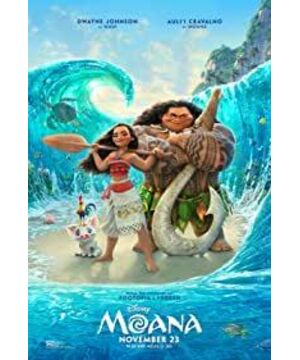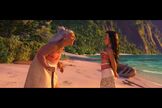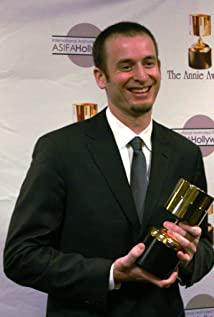Following Disney's genre film tradition, "Moana" has once again served as a carrier of politically correct values. But the film itself seems to imply a further appeal: trying to trigger the audience to interpret and think about the future possibilities of human civilization. Although under the skin of the main melody, this intention is not obvious.
The film’s selection of the background of the story is ingenious. The South Pacific has always been a classic example in the history of anthropological research: from Taiwan to New Zealand, from Madagascar to Easter Island, a vast area that covers more than half of the earth’s surface, its inhabitants are genetically different. Basically similar, and used a common language-Austronesian family before the great geographical discovery. This fact shows that the inhabitants of the South Pacific islands all migrated and spread from the same ethnic group. The history of the islanders’ navigation indirectly shown in the film is just a cross-section of this magnificent historical process.
In the course of human history, examples of national proliferation and migration are not uncommon. From the conquest of South China by the Chinese, to the proliferation of the Bantu in Black Africa, to the Westward Movement in the United States, similar processes generally followed the same characteristics: continuity and irreversibility, constantly starting from the existing frontiers. In opening up new frontiers, there is no stagnation or regression in the overall trend.
Compared with other anthropological cases, the migration process of the Austronesian peoples has its own particularities. The initial departure point for the migration of the Austronesian group was in Taiwan or the southern China mainland further north. Due to the constant pressure from the northern Sino-Tibetan group of people, the direction of their migration could only be the southern ocean, which is more unsuitable for human survival. The natural geographic isolation of the archipelago environment determines the repeated stagnation of the Austronesian peoples in the migration process. This is also reflected in the first half of the film: the islanders are satisfied with the existing resources of the island and give up sailing. Action, even solidifying the idea of sticking to the island into an ancestral training passed down from generation to generation. This is actually an optimal choice based on the short-term risk-reward ratio: If you give up further exploration of the ocean, the natural resources of the island are completely sufficient to carry the population growth within a period of time and the ensuing environmental pressure, and navigation is avoided. The huge potential risk of action. There has been almost no similar stagnation in the migration history of other ethnic groups, because the return of land migration is usually higher than that of ocean migration, and the risk is much lower than the latter.
However, with the continuous growth of the population and the continuous consumption of resources, the limited natural resources of the islands will eventually be unable to meet the survival needs of the islanders' society. At the beginning of the film, the demigod Maui stole the heart of the goddess and brought bad luck to the small islands in the South Pacific, which actually metaphors the ultimate fate of the island society from the beginning. The phenomenon of depletion of fishery resources and plant diseases in the film can be summarized as a resource bottleneck in the development of society. If you cannot find a way to break through the bottleneck before the resource consumption reaches the key node, then the entire island society will not be able to escape the fate of destruction.
The islanders in the film are fortunate. Although their ancestors gave up further exploration of the ocean, they left ocean-going ships as a condition for restarting their sailing operations. At the end of the film, the islanders relied on the ships left behind by their ancestors to embark on the journey of ocean migration again, breaking through the resource bottleneck they faced, and ensuring the continuation of the island society.
However, what the film shows is only an ideal situation after all. In actual history, not all island societies are as lucky as in the movie. As the Austronesian people generally lack written words, it is not easy to regain the shipbuilding and navigation skills of their ancestors after several generations of knowledge faults; and in the case of rapid resource consumption, can they accumulate sailing before the bottleneck arrives? Sufficient resources required are also huge questions. Take Easter Island in the Polynesian archipelago as an example. The island is more than 2000km away from the nearest inhabited island. The Austronesian peoples who can reach here across a large area obviously have abundant resources, reliable transportation and superb sailing skills. After it gave up sailing and settled on the island, the abundant natural resources caused population expansion, followed by exponential growth in resource consumption. When the islanders realized that they needed to restart navigation to deal with the approaching resource bottleneck, the woody plants on the island had been cut down, and there was no longer a possibility to make ships. Not only cannot continue marine migration activities to achieve social continuity, but even the most basic fishing and hunting activities that meet food needs are difficult to guarantee. Many traces of cannibalism have even been found in the archaeological remains of the late Easter Island. When Western explorers landed on the island for the first time in the 18th century, they saw only a barren territory with sparse population, no trees, only a few weeds and low shrubs.
Standing on the scale of the universe, the fate of the entire human race is similar to that of the Austronesian nation in history. Just as the Austronesian peoples have moved from pioneering and enterprising across the ocean to being stuck on the island, the continuous development and progress of human civilization from the beginning to the present may not last forever. Since the development of the earth's surface has been basically completed, the new living space can only be the vast universe. The technological level of mankind is still far away from interstellar migration, but modern industrial civilization is consuming the existing resources on the earth at an unprecedented rate. If an effective way to break through the bottleneck cannot be found before the resource bottleneck arrives, then humanity will be trapped on an isolated island in the universe like the Austronesian people on Easter Island, and the resulting technological stagnation and regression will follow. The foundation of modern civilized society will eventually be shaken, and the entire human race will not escape the doom of destruction.
The film itself does not directly involve the discussion of the ultimate destiny of mankind, but the thinking caused by the content of the film may be unexpected by the creator himself, which is also the charm and value of film and television works.
View more about Moana reviews











